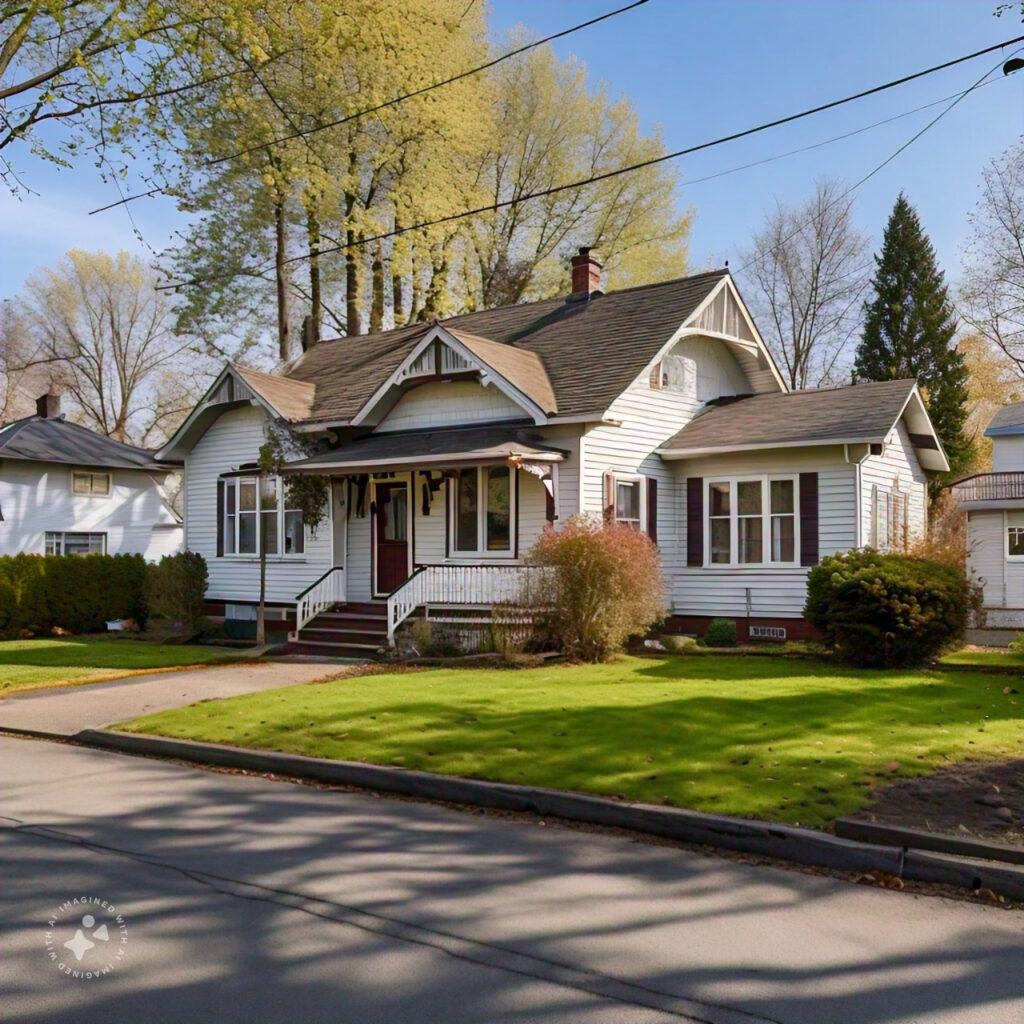
Navigating the Residential Property Market: Top 7 Tips for First-Time Homebuyers
Buying your first home is one of life’s biggest and most exciting milestones. It’s a journey filled with dreams, decisions, and a fair share of emotions. From envisioning your perfect space to navigating the maze of listings and paperwork, the process can feel overwhelming. You might be feeling a mix of excitement and anxiety, and that’s completely normal.
Whether you’re dreaming of a cozy bungalow, a modern apartment, or a spacious family home, the residential property market can seem like a daunting landscape. With so many factors to consider—budget, location, condition of the home, and more—it’s easy to feel lost. But fear not! With the right approach and some handy tips, you can turn this complex process into an enjoyable and rewarding experience.
In this guide, we’ll break down the essential steps to help you confidently navigate the home-buying process. From understanding your budget and getting pre-approved for a mortgage to choosing the right neighborhood and working with a knowledgeable real estate agent, these tips will help you make informed decisions and find the perfect place to call home.
So, if you’re ready to embark on this exciting journey, let’s dive into the top seven tips that will guide you through the residential property market and set you up for success as a first-time homebuyer.
1. Understand and Stick to Your Budget
Before you even start browsing through listings or imagining yourself in that dream home, it’s crucial to get a handle on your budget. This might sound like a no-brainer, but it’s a step that can make or break your home-buying experience.
First things first: figure out how much you can realistically afford. It’s not just about the price of the house itself. You also need to consider other costs, like property taxes, homeowners insurance, and any maintenance or repair work that might come up. It’s easy to get swept away by the excitement of finding a beautiful home, but remember that there are ongoing expenses to think about, too.
To get a clearer picture of what you can afford, start by using online mortgage calculators. These tools can give you a good estimate of your monthly payments based on your income, down payment, and interest rate. If you’re feeling overwhelmed, don’t hesitate to reach out to a financial advisor who can help you crunch the numbers and create a budget that works for you.
Once you’ve set your budget, stick to it! It can be tempting to stretch your budget a little to get that extra feature or a home in a slightly more desirable neighborhood, but doing so can lead to financial strain down the road. It’s important to be honest with yourself about what you can comfortably afford. Overextending yourself might lead to stress and financial difficulties later on.
Think of your budget as a roadmap for your home search. It’ll guide you toward homes that fit within your financial limits and help you avoid the frustration of falling in love with a property that’s just out of reach. By staying within your budget, you’ll ensure that you can enjoy your new home without the added worry of financial strain.
2. Get Pre-Approved for Your Mortgage First
Before you get too excited about attending open houses and imagining yourself in a new home, there’s an important step you need to take: getting pre-approved for a mortgage. This might sound like just another task, but it’s actually a game-changer in the home-buying process.
So, what does getting pre-approved mean? Essentially, it’s a process where a lender reviews your financial situation to determine how much they’re willing to lend you. This involves sharing details about your income, debts, credit history, and assets. Based on this information, the lender will give you a pre-approval letter that outlines the maximum loan amount you’re eligible for.
Here’s why pre-approval is such a big deal:
- Shows Sellers You’re Serious: When you have a pre-approval letter in hand, you’re showing sellers that you’re a serious buyer who is ready to make a move. This can give you a competitive edge, especially in a hot market where sellers may receive multiple offers. It signals that you’ve done your homework and are financially ready to buy.
- Helps You Shop Within Your Range: Knowing your pre-approved loan amount helps you focus on homes that fit your budget. Instead of falling in love with a property that’s just beyond your financial reach, you can zero in on homes that are comfortably within your price range. This makes the search process more efficient and less frustrating.
- Speeds Up the Buying Process: When you’re pre-approved, you’re essentially pre-vetted by the lender. This can speed up the closing process once you find a home you want to buy. Since the lender has already reviewed your financials, the remaining steps in securing your mortgage are usually quicker and smoother.
- Identifies Potential Issues Early: Going through the pre-approval process can uncover any potential financial issues early on. If there are any concerns with your credit score or financial situation, you’ll have time to address them before you start making offers on homes.
To get pre-approved, you’ll need to gather some key documents, such as your pay stubs, tax returns, and details of your current debts. It’s a good idea to shop around and compare offers from different lenders to find the best terms and rates. Once you’ve been pre-approved, you’ll have a clearer idea of your budget and be ready to start house hunting with confidence.

3. Explore the Neighborhood Thoroughly
When buying a home, you’re not just investing in a property; you’re also investing in a community. The neighborhood you choose can have a huge impact on your daily life and overall happiness. So, before you make any decisions, it’s important to explore the neighborhood thoroughly.
Let me explain why;
- Location Matters: Consider how the neighborhood fits with your lifestyle. Is it close to work or your daily activities? How long will your commute be? A location that makes your daily routine easier can make a big difference in your overall satisfaction. Think about proximity to public transportation, main roads, and major conveniences like grocery stores, gyms, and healthcare facilities.
- Check Out the Schools: If you have children or plan to in the future, the quality of local schools can be a major factor. Research the schools in the area and see how they rank in terms of academic performance and extracurricular activities. Good schools can enhance your family’s experience and potentially boost the home’s resale value.
- Safety First: Safety is a top priority for most homebuyers. Look into the crime rates in the neighborhood to ensure it’s a safe place to live. Many local police departments and community websites provide crime statistics that can give you a better understanding of the area’s safety. You can also talk to current residents to get a feel for how safe they feel living there.
- Community Feel: Every neighborhood has its own vibe. Spend time walking around the area at different times of day to get a sense of the community’s atmosphere. Are the streets lively with activity, or is it a quiet, peaceful retreat? Check out local parks, community centers, and events to see if the neighborhood’s social scene aligns with your interests.
- Future Development: It’s helpful to know what’s in store for the neighborhood’s future. Are there plans for new developments, commercial projects, or infrastructure changes? Future developments can impact property values and your quality of life. Research any upcoming projects or zoning changes that might affect the area.
- Talk to the Neighbors: If possible, strike up conversations with potential neighbors. They can offer valuable insights into what it’s really like to live in the area. Ask about community activities, local issues, and the overall living experience. Current residents often have the best perspective on the neighborhood’s pros and cons.
By taking the time to thoroughly explore the neighborhood, you’ll be better equipped to choose a location that fits your lifestyle and long-term needs. It’s not just about finding a house; it’s about finding a place where you feel comfortable, connected, and happy. So, don’t rush this step—getting to know the neighborhood will help ensure that you find a home you’ll truly love.
4. Choose a Skilled Real Estate Agent
When it comes to buying a home, having a knowledgeable real estate agent by your side can make a world of difference. Think of them as your guide through the complex landscape of real estate. A good agent knows the local market inside and out, can help you find homes that match your needs, and will negotiate on your behalf to get you the best deal.
Finding the right agent involves looking for someone who not only has experience but also understands your specific needs as a first-time buyer. Look for an agent with a proven track record in your desired area and one who is familiar with the current market trends. Don’t hesitate to meet with a few agents before making your choice—this is a big decision, and you want to make sure you find someone you feel comfortable working with. A great agent will take the time to listen to your preferences and guide you through every step of the process, making it a lot less stressful.

5. Don’t Skip the Home Inspection
When it comes to buying a home, having a knowledgeable real estate agent by your side can make a world of difference. Think of them as your guide through the complex landscape of real estate. A good agent knows the local market inside and out, can help you find homes that match your needs, and will negotiate on your behalf to get you the best deal.
Finding the right agent involves looking for someone who not only has experience but also understands your specific needs as a first-time buyer. Look for an agent with a proven track record in your desired area and one who is familiar with the current market trends. Don’t hesitate to meet with a few agents before making your choice—this is a big decision, and you want to make sure you find someone you feel comfortable working with. A great agent will take the time to listen to your preferences and guide you through every step of the process, making it a lot less stressful.
6. Get a Grip on the Paperwork
When buying a home, you’ll encounter a mountain of paperwork. From the initial offer to the final closing documents, it’s important to understand and manage every piece. While this might seem like a tedious task, it’s essential for ensuring a smooth transaction and protecting your interests.
First off, familiarize yourself with the key documents you’ll encounter. These include the purchase agreement, which outlines the terms of your offer, the mortgage application, which details your loan terms, and various disclosures about the property’s condition. Each document serves a specific purpose and has legal implications, so it’s crucial to know what you’re agreeing to.
It’s easy to feel overwhelmed by the sheer volume of paperwork, but taking it step by step can make the process more manageable. Start by reviewing the purchase agreement carefully. This document outlines the price you’re offering, any contingencies (such as a successful home inspection), and your intended closing date. Make sure all the terms align with what you’ve agreed upon and that there are no unexpected clauses.
The mortgage documents are another key area to scrutinize. These include the loan estimate, which provides details on your interest rate, monthly payments, and closing costs. Pay close attention to these figures and compare them to what you were initially quoted. If there are discrepancies, don’t hesitate to ask your lender for clarification.
Don’t overlook the importance of disclosures. Sellers are typically required to provide information about the property’s condition, including any known issues or past repairs. Carefully review these disclosures to ensure you’re aware of any potential problems before finalizing your purchase. If something seems off or you have concerns, discuss them with your agent or consider asking for further investigation.
It’s also wise to keep a file or folder with copies of all documents related to the purchase. This will help you stay organized and provide a reference if any issues arise. Finally, if you find any part of the paperwork confusing or concerning, consider consulting a real estate attorney.
7. Think About Your Future Needs
While it’s important to find a home that suits your current needs, think about what might happen in the future. Are you planning to start a family or need more space soon? Is the home in a neighborhood that will continue to be desirable? By considering your long-term needs, you can choose a home that will work well for you over time and be a good investment.
Buying your first home is an exciting adventure, and with these tips, you’ll be well-prepared to tackle it confidently. Enjoy the journey, and remember, finding the right home is just the beginning of making it your own. Happy house hunting!



